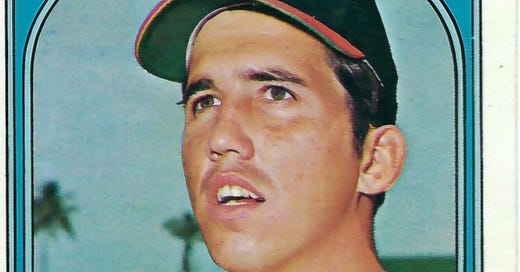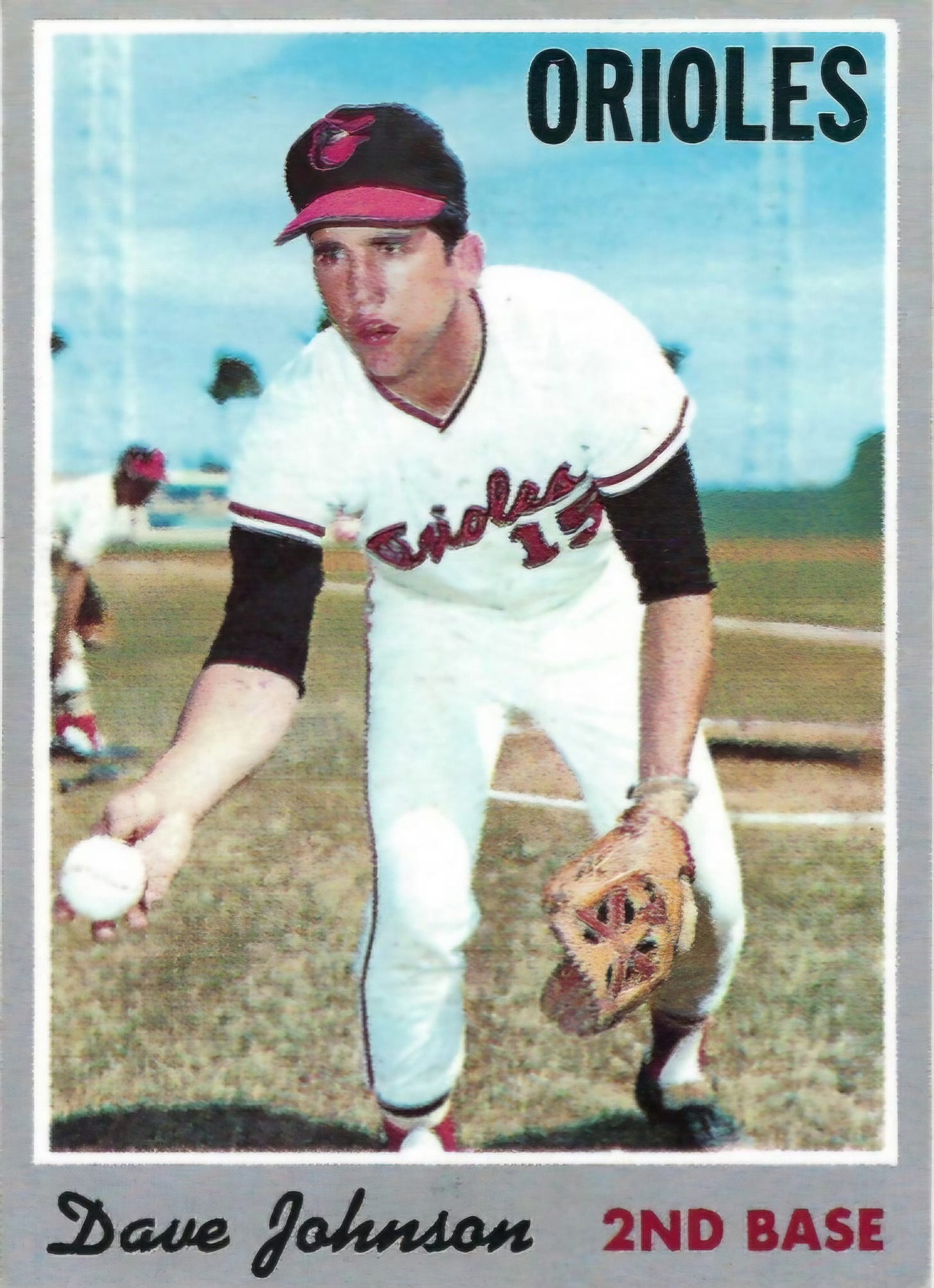The Bird Tapes Interview: Davey Johnson
He had two tenures with the Orioles, one as a player in the 1960s and early 1970s and another as a manager for two crazy years in the 1990s. He explains how his tenures were connected.
In hindsight, it’s clear why the Orioles zeroed in on Davey Johnson as a prospect in the early 1960s, initiating a relationship that lasted decades on and off.
In those days, before baseball instituted a draft, the Orioles’ scouts followed a blueprint developed by Jim McLaughlin, the club’s first farm director. Prospects were graded in two areas — qualities you could see, such as hitting, throwing, running, power, etc., and qualities you couldn’t see, such as intelligence, drive, instincts, etc.
The Orioles valued the qualities you couldn’t see more than most organizations, and Johnson reflected what they were looking for. Smart, curious and observant, he was in college, playing shortstop for Texas A&M, when he signed. The pros had far fewer players from the collegiate ranks in those days, and rightly or not, they often were earmarked as brainiacs. The label was accurate in Johnson’s case.
His physical talents — those you could see — also stood out. He would go on to play 13 years in the major leagues, start at second base for two World Series-winning teams, make four All-Star Game appearances, win three Gold Gloves, and tie Hall of Famer Rogers Hornsby’s major league record for most home runs in a season by a second baseman. On the Orioles, he more than held his own as part of an infield that included Brooks Robinson, Luis Aparicio, Mark Belanger and Boog Powell.
But his sharp mind helped him thrive, and then, it really helped him have an even longer and more stellar second act in the game. Johnson’s teams finished 301 games over .500 during his 17 years of managing in the majors. (Do the math. It means he averaged nearly 90 wins per season.) Winning a World Series with the New York Mets (in 1986) was a highlight, as was guiding the Orioles to two playoff appearances in two years (1996 and 1997) under Peter Angelos’ ownership.
In my vintage interview with Johnson, available below to paid Bird Tapes subscribers, he clearly identifies the baseball tissue connecting his playing and managerial careers. That mind that attracted the Orioles to him in the first place — you can practically hear it whirring. While playing with the Orioles in the 1960s and early 1970s, he says, he kept his eyes on Earl Weaver, paying special heed to the manager’s handling of pitchers and general competitiveness. Then, as a manager himself years later, Johnson employed many facets of Weaver’s approach.
Certainly, both were original thinkers. Weaver was years ahead of the curve with his interest in statistical analysis. Johnson was a similarly clever button-pusher and unafraid of risk. He precipitated a freakout across Birdland when he moved Cal Ripken Jr. to third base late in the Ironman’s consecutive-game streak, prompting many observers to believe the two didn’t get along. Wrong. Ripken, in his Bird Tapes interview, called Johnson Baltimore’s “best manger since Earl.”
It was clear in Weaver’s Bird Tapes interview that he recognized the connection, proudly citing Johnson’s winning strategy of stacking the Orioles’ lineup with hitters who’d performed well in the past against the Seattle Mariners’ Randy Johnson in the 1997 playoffs. Relatively light-hitting Jeff Reboulet was among them, and he hit a home run in the series-clinching win.
No other manager in the game would’ve had the guts to do that, Weaver said.
Johnson’s analytical bent was apparent long before he became a manager. In 1969, according to a Society for American Baseball Research profile, Johnson fed various batting orders into a computer at Trinity College in San Antonio, where he took classes, to see what the optimal Baltimore lineup would be. Dave McNally recalled a mound visit in which Johnson cited the “unfavorable change deviation theory” as a way of combatting wildness. Frank Cashen recalled Johnson bringing complex charts into their annual salary negotiation sessions, hoping to earn raises. They butted heads, but Cashen later hired Johnson to manage the Mets.
When we spoke for my book on Orioles history in the spring of 2000, Johnson was managing the Los Angeles Dodgers. He was a little over two years removed from the controversial end to his tenure as the Orioles’ manager, which culminated with him tending his resignation to Angelos on the day he was named American League Manager of the Year. He chooses his words carefully when discussing Angelos.
His tenure with the Dodgers ended after the 2000 season, and he made one more stop as a major league manager. In 2012, he led the Washington Nationals to 98 wins and their first postseason appearance — another improbable feat. It happened a full half-century after Johnson began his pro baseball career by signing with the Orioles (in the middle of the night at his parents’ house in San Antonio, by the way). Through all those decades in the game, he was never anything other than a true original.
Keep reading with a 7-day free trial
Subscribe to The Bird Tapes to keep reading this post and get 7 days of free access to the full post archives.






